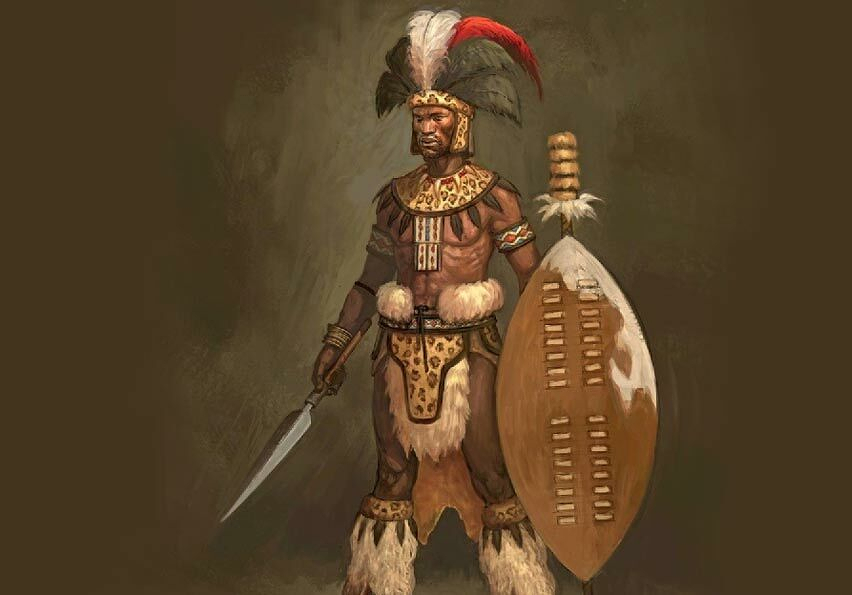Shaka Zulu
I recently came across Shaka ka Senzangakhona in three different books over the past two weeks, and I found his story too striking not to share. I first came across him in The Narrow Corridor, where the authors discuss his unique military innovations and brutal, but successful leadership. A few days ago, he appeared in General Stanley McChrystal’s book On Character. McChrystal shared a story about how Shaka made his warriors dance on ground covered with sharp needles and if they flinched, they were executed. Finally, in The Birth of the Modern, he was brought up in the context of the history of southern Africa during the early 19th century, when he reigned. I love it when such serendipity pops up in my reading.
Anyway…born around 1787 and dying in 1828, Shaka became king of the Zulu in what is now KwaZulu-Natal in South Africa from 1816 to 1828.
What fascinates me is how he took a relatively minor clan and, through bold military, social and political reforms, built it into a dominant power in his corner of Africa. His success arose because he reorganised the Zulu regiments, introduced new weaponry and tactical formations, and absorbed neighbouring groups under Zulu rule.
At the same time, Shaka’s reign is drenched in blood and controversy. His mother’s death in 1827 triggered a wave of harsh decrees—including mass-executions, bans on planting or using milk, and demands of mourning—that turned many of his own people against him. He was also apparently so paranoid that his heir might depose him, that if any of his concubines became pregnant, he had them killed. Not surprisingly, he was assassinated by his half-brothers in 1828.
In my reading, I’ve found myself wondering: how do we reconcile the visionary-leader and the ruthless-tyrant in one figure? His life makes me think of people like Alexander the Great and Napoleon, who are often idolized, but who both caused tremendous suffering as a result of their military pursuits. I’ll continue to reflect on how each of the three authors portrays Shaka, as successful military leader and cruel tyrant, and invite you to do the same. How does his story challenge our ideas of leadership and legacy? What lessons (or warnings) does his rise and fall offer us today?
